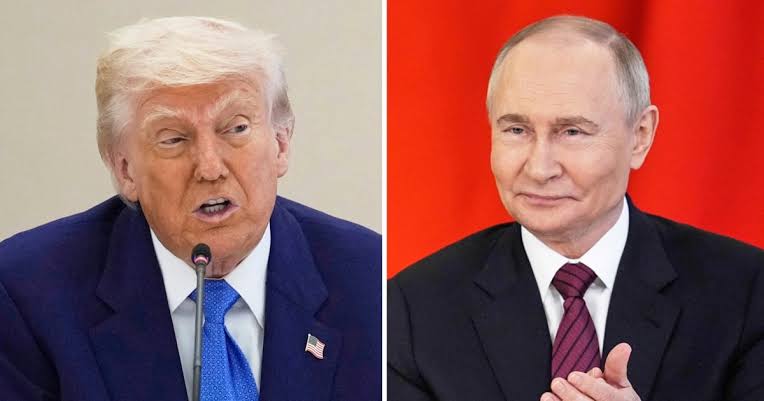By Eniola Amadu
The European Union’s top sanctions envoy, David O’Sullivan, is in Washington for high-level talks with US officials after Donald Trump signalled readiness to move to a “second phase” of sanctions against Russia over its war in Ukraine.
O’Sullivan is meeting US counterparts this week as both sides consider stronger measures to weaken President Vladimir Putin’s war machine, following Moscow’s largest air assault on Ukraine over the weekend.
At least four people, including a mother and her baby, were killed, and a government building in Kyiv was set ablaze.
READ ALSO: Judge blocks Trump administration move to end protections for Haitians, Venezuelans in US
In Helsinki on Monday, European Council president António Costa praised transatlantic cooperation and stressed that Washington remained committed to Ukraine.
“We are coordinating our efforts to align sanctions, to be more effective,” Costa said, calling for both primary and secondary measures, including penalties on countries still buying Russian oil and gas.
Speaking to reporters at the White House on Sunday, Trump confirmed he was prepared to escalate punitive measures, though he offered no details.
Asked whether the US would adopt tougher sanctions, he replied: “Yeah, I am,” hinting at imminent meetings with European leaders and a possible conversation with President Putin.
US Treasury Secretary Scott Bessent has already floated joint US-EU tariffs on countries trading Russian energy, warning of the urgent need to increase pressure on Moscow.
“We need our European partners to follow us, because we are in a race now between how long the Ukrainian military can hold up versus how long the Russian economy can hold up,” Bessent said.
German Chancellor Friedrich Merz welcomed stronger US involvement. A government spokesperson described Moscow’s latest strikes as “further escalation” and confirmed Berlin’s support for deeper sanctions in coordination with Washington.
The EU has already adopted 18 rounds of sanctions since Russia’s full-scale invasion in February 2022, with new measures expected in the coming days.
The latest package lowered the oil price cap, tightened petroleum trade loopholes, and banned vessels carrying Russ ian energy from European ports.
However, divisions remain within Europe, with Hungary and Slovakia still resisting plans to phase out Russian fossil fuels by 2028, despite the EU’s pledge to buy $750bn worth of US energy products.
Meanwhile, Trump’s administration imposed 50% tariffs on Indian goods over its purchases of Russian oil, while avoiding similar penalties on China, Moscow’s biggest energy customer.
Ukraine’s president, Volodymyr Zelenskyy, has urged Western allies to respond to Russia’s escalation with “tough tariffs” and fresh sanctions. The Kremlin, however, dismissed the pressure campaign, with spokesperson Dmitry Peskov insisting no sanctions would alter Russia’s course.
READ ALSO: Trump signs executive order to rebrand department of defense as department of war
Finland’s prime minister, Petteri Orpo, echoed Zelenskyy’s call for closer US-EU coordination. “Putin will not stop killing, he will not go to the negotiation tables,” he said.
“That is why we have to cooperate with the US to do more sanctions, stronger sanctions, more military support to Ukraine, and build security arrangements.”



